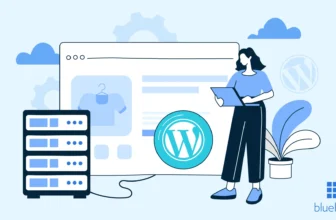
THE RISE OF DIGITAL DETOX RETREATS ON A HYPER-CONNECTED WORLD
Digital detox retreats are retreats or programs designed to help individuals disconnect from technology and the digital world. These retreats offer a temporary escape from the constant connectivity and digital distractions that have become ubiquitous in our modern lives.
During a digital detox retreat, participants are encouraged to unplug from their devices, such as smartphones, laptops, and tablets, and instead focus on connecting with themselves, others, and nature. The retreats often provide a variety of activities aimed at promoting mindfulness, relaxation, and personal growth, such as meditation, yoga, nature walks, art therapy, and group discussions.
By stepping away from technology and immersing themselves in the present moment, participants have the opportunity to recharge, refocus, and gain a new perspective on their lives. Disconnecting from digital devices allows individuals to reduce stress, improve sleep quality, enhance creativity, and foster deeper connections with themselves and others.
Digital detox retreats vary in length and format, ranging from weekend getaways to week-long retreats in remote locations. Some retreats may have strict rules about using technology, while others may offer more flexibility in choosing when and how to disconnect. Ultimately, the goal of a digital detox retreat is to help individuals find balance, peace, and clarity in an increasingly digital world.
Examples of such retreats are scattered across the country and globally.
- Unplug @ The Ranch: A retreat located in Malibu, California, offering a variety of activities such as hiking, yoga, meditation, and digital detox workshops to help participants disconnect from technology and reconnect with nature.
- Digital Detox Retreat: Held at various locations in the UK, this retreat offers a weekend of mindfulness, yoga, and relaxation to help participants unwind from their digital devices and tune into the present moment.
- Off the Grid Retreat: Located in Hawaii, this retreat offers a week-long experience of disconnecting from technology and reconnecting with oneself through activities such as surfing, hiking, and mindfulness practices.
- Unplugged Wellness Retreat: Held in Bali, Indonesia, this retreat focuses on digital detoxification through activities like meditation, yoga, and silent walks in nature, helping participants find balance in their tech-reliant lives.
- Disconnect to Reconnect Retreat: Located in Costa Rica, this retreat offers a week of rejuvenation and relaxation through yoga, meditation, and mindfulness practices while encouraging participants to put away their devices and immerse themselves in the present moment.
In today’s fast-paced, hyper-connected world, it can often feel like we are constantly bombarded with notifications, emails, and social media updates. Our smartphones and devices have become a constant presence in our lives, leaving many of us feeling overwhelmed and overstimulated. With this constant connectivity comes a need for a break, a chance to unplug and unwind from the digital world.
For individuals planning or interested in taking a break for relaxation and meditation to get rejuvenated and connected with nature to boast inner peace and happiness, these retreats offer individuals the opportunity to disconnect from their devices and immerse themselves in nature, mindfulness, and self-care. From yoga and meditation retreats to wilderness camps and spa getaways, there are now countless options for those looking to escape the digital noise and recharge their batteries.
The appeal of these retreats lies in their promise of a reprieve from the constant stimulation of the digital world. By disconnecting from our devices, we are able to reconnect with ourselves and with the world around us. With activities such as hiking, journaling, and group discussions, participants are encouraged to slow down, be present, and engage in meaningful face-to-face interactions.
Studies have shown that excessive screen time can have negative effects on our mental and physical health, including increased levels of stress, anxiety, and sleep disturbances. By taking a break from our devices, we can improve our overall well-being and reset our relationship with technology.
The popularity of digital detox retreats also reflects a growing awareness of the importance of balance in our lives. In a world where we are constantly connected, it can be all too easy to lose sight of the things that matter most – our relationships, our health, and our connection to nature. These retreats offer a space for individuals to reflect on their priorities and make conscious choices about how they interact with technology in the future.
As the demand for digital detox retreats continues to grow, we can expect to see even more options and destinations popping up around the world. Whether you’re looking for a weekend getaway or a longer sabbatical, there is sure to be a retreat that caters to your needs and interests.
In a society that is increasingly defined by our digital devices, the rise of digital detox retreats offers a refreshing and much-needed antidote. By taking the time to unplug and disconnect, we can rediscover the joy of being present in the moment, connecting with others, and immersing ourselves in the beauty of the world around us.
FINDING PEACE AND BALANCE
Finding peace and balance in a world filled with chaos and noise is essential for our overall well-being and happiness. It requires intention, mindfulness, and a commitment to self-care. Here are some tips on how to cultivate peace and balance in your life:
- Practice mindfulness: Mindfulness is the practice of being fully present in the moment without judgment. By focusing on the present moment, we can let go of worries about the past or future, and find peace in the here and now. Mindfulness can be practiced through meditation, deep breathing exercises, or simply paying attention to the sensations around you.
- Set boundaries with technology: In today’s digital age, it can be easy to get sucked into the never-ending stream of emails, social media, and notifications. Setting boundaries with technology can help create space for peace and balance in your life. Consider implementing a digital detox day or setting specific times during the day to unplug and disconnect from your devices.
- Prioritize self-care: Taking care of yourself is essential for finding peace and balance. Make time for activities that bring you joy and relaxation, whether it’s spending time in nature, practicing yoga, reading a book, or simply taking a long bath. Self-care is not selfish – it’s necessary for your overall well-being.
- Simplify your life: A cluttered environment can lead to a cluttered mind. Take time to simplify your life by decluttering your physical space, organizing your belongings, and letting go of things that no longer serve you. A simpler, more organized environment can lead to a clearer mind and a greater sense of peace.
- Connect with others: Finding peace and balance also involves fostering meaningful relationships with others. Spend time with loved ones, reach out to friends for support, and connect with your community. Building a strong support system can help you navigate life’s challenges and find comfort and peace in times of need.
By incorporating these practices into your daily routine, you can cultivate a sense of peace and balance that will help you navigate life’s ups and downs with grace and resilience. Remember, finding peace and balance is a journey, not a destination – so be patient with yourself and allow yourself the space to grow and evolve along the way.
CATEGORIES OF DIGITAL DETOX RETREATS
Nature-focused retreats: These retreats focus on connecting with nature and often involve activities such as hiking, camping, and outdoor meditation to help participants detach from their digital devices and reconnect with the natural world.
Wellness retreats: These retreats emphasize physical and mental well-being through activities such as yoga, mindfulness practices, spa treatments, and healthy eating. Participants are encouraged to unplug from technology and focus on self-care.
Mindfulness retreats: These retreats teach participants how to be present in the moment and cultivate mindfulness through meditation, breathwork, and other mindfulness practices. Participants are encouraged to disconnect from technology to enhance their mindfulness experience.
Yoga retreats: These retreats offer a digital detox by focusing on yoga practice, meditation, and relaxation techniques. Participants can immerse themselves in a technology-free environment to deepen their yoga practice and rejuvenate their mind and body.
Silent retreats: These retreats require participants to maintain silence throughout the retreat, minimizing communication and interaction with others. Participants are encouraged to disconnect from technology to fully engage in self-reflection and inner exploration. Overall, these types of retreats provide a variety of ways for individuals to disconnect from technology, reconnect with themselves, and find balance in their lives.
Aside the much benefit acquired from digital detox retreats, there are also some potential disadvantages to consider which are listed below;
1. Withdrawal symptoms: For individuals who are heavily reliant on their digital devices, taking a break from technology can lead to withdrawal symptoms such as anxiety, restlessness, and FOMO (fear of missing out). This can make the initial transition to a digital detox retreat challenging for some participants.
2. Disconnection from work or responsibilities: For some individuals, being away from their digital devices means being disconnected from work and important responsibilities. This can cause feelings of guilt or anxiety about falling behind or missing important communications.
3. Lack of accessibility: Some people may rely on their digital devices for important information, communication, or navigation. Being without these tools during a digital detox retreat can be inconvenient and may cause feelings of disorientation or unease.
4. Limited social interaction: While digital detox retreats promote more meaningful face-to-face interactions, some participants may struggle with the lack of constant online connection to friends and family members. This can lead to feelings of isolation or loneliness for some individuals.
5. Unrealistic expectations: Some participants may expect profound and immediate changes from a digital detox retreat, only to be disappointed when they do not experience instant transformation. Managing expectations and understanding that digital detox is a process that takes time and effort is important.
Finally, while digital detox retreats can offer many benefits, it is important to consider these potential disadvantages and carefully evaluate whether a digital detox retreat is the right choice for you. Yes, digital detox retreats provide a much-needed break from the constant onslaught of digital distractions and offer a chance to recharge, reset, and prioritize self-care, but a careful consideration and decision is needed while choosing and out weighing the best steps for you.







